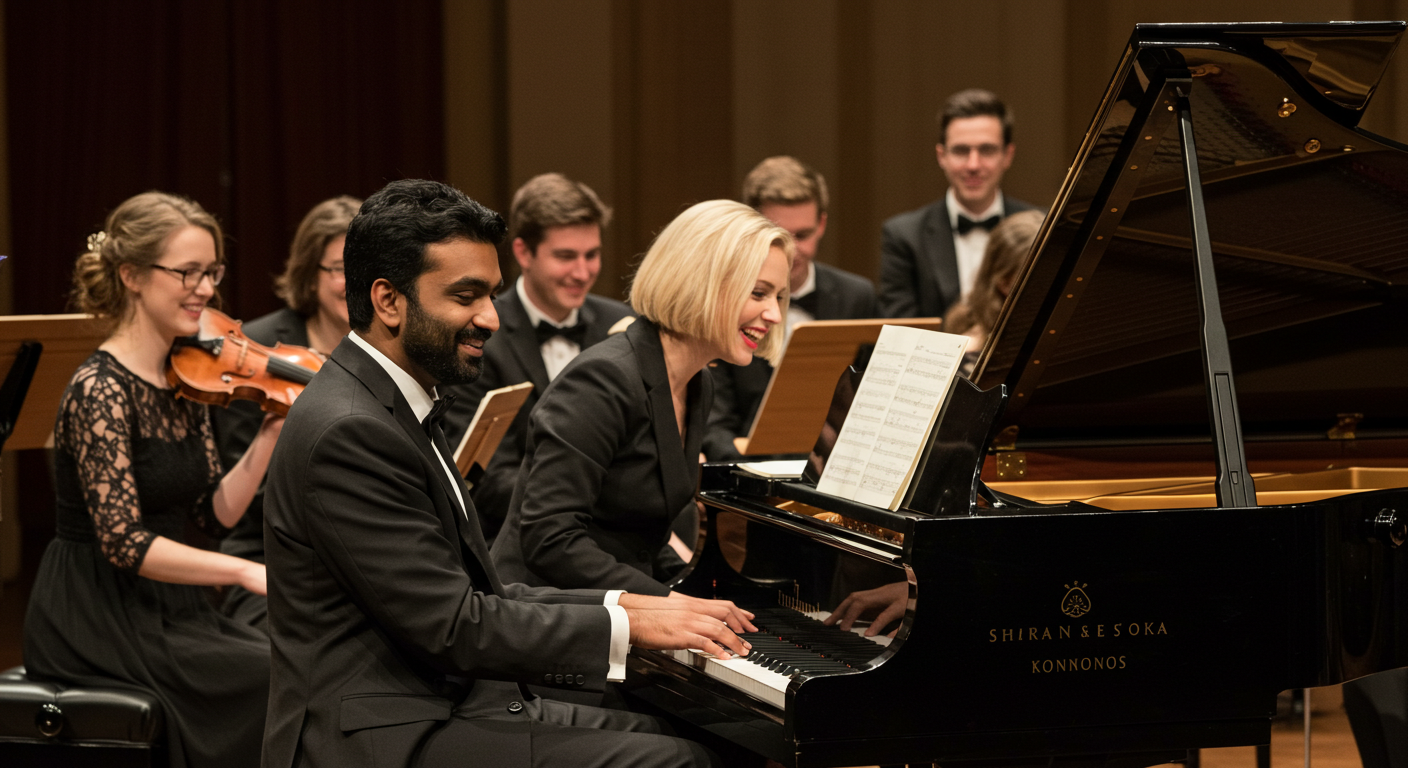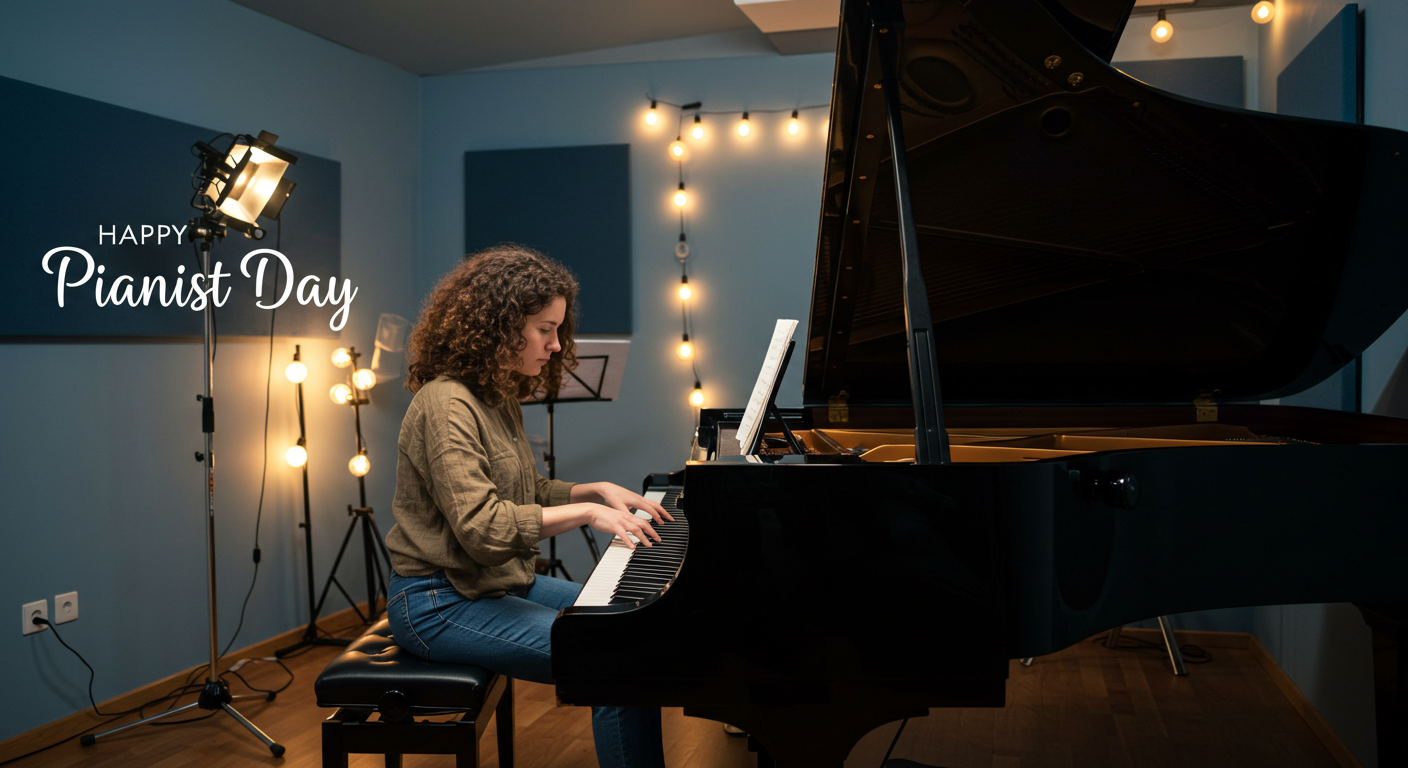The Future of Piano: AI, Virtual Lessons, and What’s Next

For centuries, the piano has been a symbol of timeless music. It doesn’t need electricity to make sound. It doesn’t depend on trends. And yet — like every art form — piano culture is evolving fast.
Today, pianists around the world are tuning their skills not just with traditional teachers, but with AI-powered apps, digital keyboards that feel like grand pianos, and even virtual performances that reach global audiences. Far from replacing tradition, this tech-enhanced shift is expanding access, flexibility, and creativity for everyone who loves the piano.
Whether you’re a beginner exploring your first scale or a lifelong musician looking to modernize your routine, here’s a look at how piano learning and performance are being transformed — and where it’s all heading next.
Virtual Lessons: Flexible, Personal, and Everywhere
The piano world changed practically overnight when global lockdowns pushed music lessons online. What started as a necessity has become a new normal for many — with thousands of teachers and students still connecting over Zoom, Skype, or dedicated platforms.
Online learning tools like Flowkey, Simply Piano, Playground Sessions, and Piano Marvel offer structured courses that combine video lessons, interactive feedback, and goal tracking. Students can now learn at their own pace, rewatch lessons, and practice anywhere they have a keyboard and a screen.
That said, virtual lessons aren’t perfect. Audio lag, limited hand correction, and the lack of real-time dynamics can be hurdles. But many teachers now offer hybrid models, combining online lessons with periodic in-person sessions or digital masterclasses.
This blend of flexibility and structure is redefining what it means to “take piano lessons” — and opening doors for students of all ages in any location.
AI-Powered Tools and Smart Learning Apps
Artificial intelligence is quietly reshaping piano education. Today’s smart apps can listen to your playing, analyze accuracy, and offer real-time feedback on tempo, notes, and rhythm. Think of them as interactive digital coaches that never get tired.
Apps like Yousician and Tonara use built-in microphones or MIDI connections to track progress and provide encouragement. Others, like Skoove, adjust lessons based on your current skill level, offering an adaptive path that grows with you.
For adult learners, these tools can be game-changers — helping them stay motivated, measure progress, and build muscle memory through guided repetition. And for teachers, they offer ways to engage students outside of class time, track homework, and personalize practice routines.
Digital Instruments That Feel Like the Real Thing
The sound and feel of an acoustic grand piano are irreplaceable. But for many learners and gigging musicians, digital pianos and hybrid keyboards are becoming essential tools.
Today’s advanced models — like the Yamaha Clavinova, Roland GP series, or Kawai CA series — offer incredibly realistic key action, sampled concert grand sounds, and built-in lesson features. Some include Bluetooth connectivity, duet modes, and silent practice options with headphones.
For city dwellers, small-space living, or families on a budget, digital instruments make piano playing far more accessible. They’re also becoming increasingly common in music schools, thanks to low maintenance and versatility.
Even during events featured on Pianist Day, many performances now involve high-end digital pianos — from small living room concerts to recorded virtual recitals. It’s a sign that digital tools are no longer second-best; they’re part of the modern standard.
Performance Goes Digital: From Concert Halls to Screens
Performance has also shifted dramatically. Instead of waiting for a live audience, pianists today can share their music instantly through livestreams, social media, and video platforms.
YouTube, Instagram, and TikTok have become digital concert halls. Pianists now build international followings, share tutorials, and even release albums directly to their audiences. Tools like OBS Studio, Twitch, and Restream allow musicians to host their own shows from home.
During past Pianist Day events, artists like Davide Fasiello and Paulette Verlée embraced this format — with home-recorded concerts and virtual album launches. These examples highlight how the future of performance isn’t about replacing live shows — it’s about making music more shareable and accessible than ever.
What This Means for the Next Generation of Pianists
For new players, these developments are empowering. It’s never been easier to get started, stay consistent, and feel part of a global music community. Piano learning is no longer limited by geography, cost, or age. With the right tools, a motivated learner can start from zero and reach real musical milestones in months — not years.
For professionals, the challenge is different: how to embrace new platforms without losing depth. Many classical artists now blend digital media with traditional repertoire, offering online masterclasses, hybrid tours, and fan-funded projects.
What unites both worlds is a shared truth: the piano, like any great instrument, thrives when it evolves.
Looking Ahead: What’s Next for Piano Culture?
We’re likely to see more personalized learning, more virtual collaborations, and more innovative performances that blur the line between live and recorded. AI might start composing practice exercises on the fly. Digital pianos will become even more responsive. And education will likely lean more on gamified, self-paced models.
But through all of this change, the core remains: expressive playing, emotional storytelling, and a deep connection to sound. That’s why days like Pianist Day matter so much — they’re not just about honoring where piano has been, but also celebrating where it’s going. You can explore how people are participating or contribute your own event at PianistDay.com.
Final Notes
Technology won’t replace the beauty of a live performance or the mentorship of a great teacher. But it will keep making piano more inclusive, flexible, and relevant for modern life.
The future of piano is not one-size-fits-all. It’s digital and acoustic, classical and experimental, solo and social. And wherever you are on that spectrum — learning, performing, or just listening — you’re part of it.
Related news (no lang!)
You Might Also Like (no lang!):
Do you want your name to be included on the world Pianist Day website and remain there forever?
CONTACT US!
Filll the form for creating your own events and stories! Also you can send us the info to our email info@pianistday.com, or directly to Instagram (it's more convenient and easier) so we can tell the world about them.








